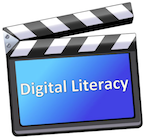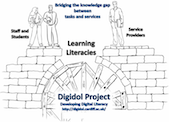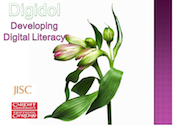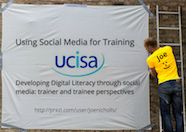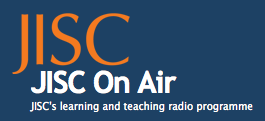 Listen to JISC on Air – Digital Literacy – Delivering the agenda within colleges and universities.
Listen to JISC on Air – Digital Literacy – Delivering the agenda within colleges and universities.
Available at http://jisconair.jiscinvolve.org/wp/2012/04/24/deliveringdigital-literacy/
The sixth episode of the JISC online radio programme, JISC On Air, explores how universities and colleges can help teaching staff, researchers, support and administrative staff to develop their digital literacies.
The show highlights how Cardiff University and other colleges and universities are developing holistic approaches and strategies for supporting the development of these skills and capabilities.
In connection with the Digidol Project, a number of staff and students were interviewed by Kim Catcheside explaining how the project is establishing an institution-wide approach for contextualising and embedding digital literacy into the development of academic staff, students, research students and administrative, managerial and support staff.
Also, Dr Andrew Eynon discusses the Personal Actualisation and Development through Digital Literacies in Education project at Coleg Llandrillo, which aims to create a digitally literate, skilled and confident workforce and student body across all the FE institutions in North Wales (Coleg Harlech, Coleg Menai, Coleg Llandrillo, Deeside College and Yale College Wrexham).
Helen Beetham, synthesis consultant for the JISC Developing Digital Literacies programme, reveals valuable insights into the emerging issues from the programme, and Alison Mitchell, Deputy Director of Vitae, speaks about the importance of digital literacies for researchers.
For further information on JISC’s work in this area visit: http://www.jisc.ac.uk/developingdigitalliteracies
In part two of the show will be looking at how digital literacy underpins the academic success and employability of students.
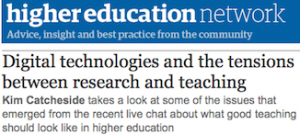
The work of the Digidol project is also mentioned in an article on the Guardian Higher Education Network site on Digital technologies and the tensions between research and teaching, where Janet Peters (University Librarian and Senior Assistant Director INSRV) is quoted highlighting the potential benefits of developing Digital Literacy of staff and students in the university.


